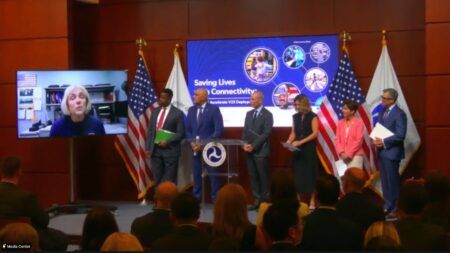The UK’s Department for Transportation (DfT) has published its Mobility as a Service: code of practice, to guide the rollout of MaaS in the UK, following industry consultation that took place between February 8 and May 3, 2022.
This code of practice provides a resource for organisations involved in MaaS schemes to navigate the challenges of making on-demand, service-based transportation networks a reality, making it easier for MaaS to thrive in the UK.
It offers specific technical and regulatory advice, and guidance on the government ambition for MaaS, which will be most useful for MaaS platform providers, transport operators and local authorities. However, members of the public, legal advisors and other third parties involved in designing and deploying MaaS schemes may also find the content helpful.
Recommendations are given under the sections:
Accessibility and Inclusion
Active and Sustainable Travel
Data Considerations for MaaS Facilitation
Consumer Protection
Competition

“Today marks a significant moment in the development and deployment of Mobility as a Service (MaaS) in the UK with the publication of the Code of Practice,” says James Lancaster, Chair of the Urban Mobility Partnership. I am delighted that the Department for Transport has extensively engaged with industry to create the Code to ensure that programmes are deployed in a way that supports a shift to multi-modal travel and assists policymakers with their bold sustainability ambitions.
“The Urban Mobility Partnership has been at the forefront of calling for a MaaS Code of Practice to support authorities and operators in delivering MaaS solutions and we are delighted to see some of our recommendations around accessibility, the importance of data sharing, fair competition and the inclusion of sustainable transport operators within MaaS solutions, contained within the Code.”
“The Urban Mobility Partnership welcomes the publication of this important document that has the potential to be a springboard for MaaS solutions and in delivering innovative projects that can transform the way people move around and will help driving the UK forward as leaders in smart and sustainable mobility. It is vital that recommendations from the Code of Practice are recognised by transport planners and local authorities in their plans for MaaS solutions to ensure they are delivered in a way that places the consumer at its heart.”
“Urban Mobility Partnership members have already participated in groundbreaking MaaS projects, and it is fantastic to see the GOHI project in the Highlands and Islands of Scotland recognised within the Code of Practice as a best practice example of how to implement MaaS solutions.”
“As MaaS continues to evolve, so should the Code of Practice and we are delighted to see the Department for Transport recognise that today’s publication is just the first step. The Urban Mobility Partnership looks forward to continuing to work with government and stakeholders to deliver solutions that benefits transport users.”





